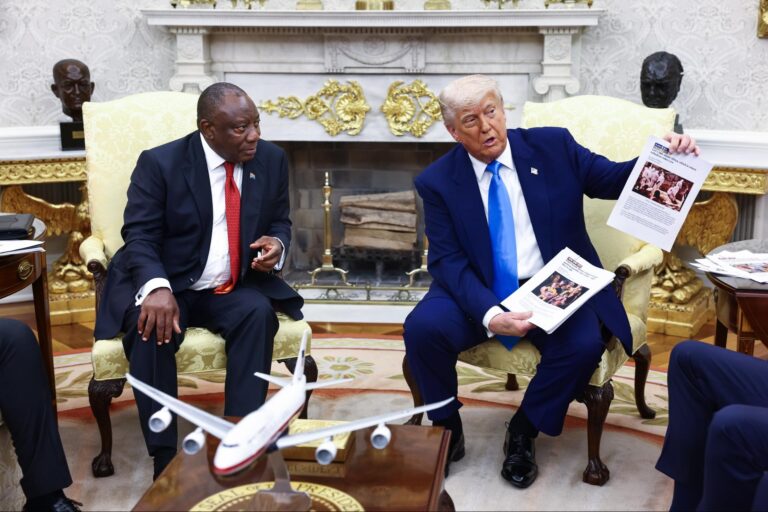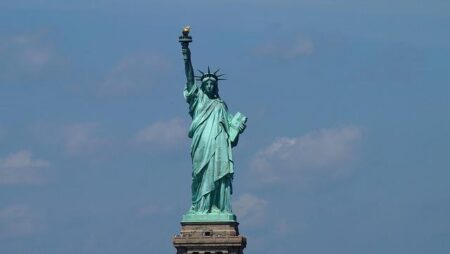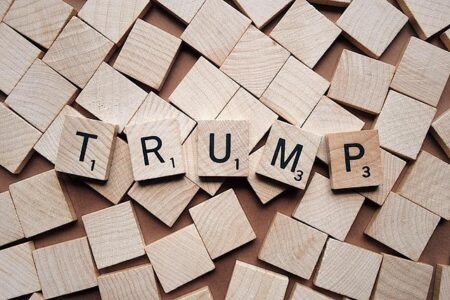Trump’s Executive Order Spurs Shift Toward Patriotic Education in U.S. Schools
Former President Donald Trump has enacted an executive order designed to foster “patriotic education” within American schools,signaling a significant pivot in the ongoing discourse about how the nation’s history and core values should be conveyed to students.This directive prioritizes themes of national pride, reverence for American heritage, and unity, reflecting broader cultural and political debates over educational content. The initiative has ignited diverse responses from educators, lawmakers, and advocacy organizations, underscoring the polarized views on the nation’s historical narrative.
Reimagining School Curricula: Emphasizing American Pride and Legacy
The Trump administration’s new policy encourages schools nationwide to adopt curricula that spotlight the United States’ foundational achievements and enduring principles. The goal is to cultivate a collective sense of pride and cohesion among students by celebrating pivotal historical milestones and the values that have shaped the American identity. Educators are urged to frame historical lessons through themes of perseverance, innovation, and patriotism.
Key elements highlighted in the revamped curriculum include:
- The Constitution and Founding Documents: Emphasizing their ongoing relevance and influence.
- Military and Civic Contributions: Showcasing sacrifices made in defense of liberty and democracy.
- Stories of Resilience: Highlighting diverse American communities’ struggles and triumphs.
| Curriculum Theme | Educational Objective |
|---|---|
| Founding Documents & Principles | Instill appreciation for democratic ideals |
| Military & Civic Service | Celebrate patriotism and sacrifice |
| Diverse American Experiences | Encourage inclusivity and shared heritage |
Controversy Surrounding Historical Portrayal and Academic Freedom
The executive order has sparked intense debate among educators, historians, and policymakers. Advocates praise the initiative for promoting a positive and unifying portrayal of American history, arguing it counters what they see as an overemphasis on the nation’s flaws and failures. They believe this approach can strengthen students’ civic responsibility and national pride.
Opponents, however, caution that the directive may lead to a sanitized version of history, potentially suppressing uncomfortable truths and limiting educators’ ability to present a balanced view. Critics emphasize the importance of preserving academic freedom and encouraging critical thinking by exposing students to multiple perspectives and the complexities of historical events. Central concerns include:
- Risk of Censorship: Omitting systemic injustices and controversial episodes.
- Reduced Critical Inquiry: Limiting students’ ability to analyze and question historical narratives.
- Political Interference: Increasing governmental influence over educational content.
| Group | Viewpoint | Main Concern |
|---|---|---|
| Supporters | Favorable | Fostering patriotism and unity |
| Educators | Mixed | Balancing academic freedom with mandated content |
| Historians | Critical | Ensuring historical accuracy and integrity |
| Parents | Varied | Influence on children’s worldview |
Evaluating the Effects on Critical Thinking and Inclusive Education
Experts in education warn that emphasizing a singular patriotic narrative may hinder students’ development of critical thinking skills. By focusing predominantly on a specific interpretation of patriotism, schools risk discouraging exploration of the nuanced and sometimes contradictory aspects of history.Many educators advocate for curricula that encourage students to analyze multiple viewpoints,fostering a more complete understanding of the past and preparing them for active participation in a diverse society.
There is also concern about the directive’s impact on inclusivity within classrooms. Critics argue that a narrowly defined patriotic curriculum could marginalize the experiences and contributions of minority groups.Vital issues raised include:
- Decreased representation of minority histories and perspectives.
- Difficulty addressing systemic inequalities through honest historical examination.
- Potential reinforcement of social divisions among students.
| Dimension | Possible Outcome |
|---|---|
| Critical Thinking | May diminish |
| Diversity in Curriculum | Could be restricted |
| Student Inclusiveness | Potentially compromised |
Strategies for Harmonizing Patriotism with Comprehensive Historical Education
To achieve a well-rounded educational experience, schools should strive to blend patriotic themes with candid historical narratives. This approach involves celebrating national accomplishments and values while also confronting the complexities and challenges embedded in America’s past. Such a balanced curriculum can nurture both pride and critical awareness among students. Professional development for educators could focus on:
- Designing inclusive curricula that incorporate diverse perspectives.
- Developing skills to facilitate respectful discussions on sensitive topics.
- Promoting civic engagement alongside rigorous historical inquiry.
Maintaining openness in educational goals is essential to prevent the politicization of history or the presentation of a one-sided narrative. The following framework offers guidance for educators seeking to balance these objectives:
| Area of Focus | Patriotic Focus | Comprehensive History |
|---|---|---|
| Curriculum Content | National symbols and founding ideals | Contextual history and multiple viewpoints |
| Instructional Method | Stories of unity and inspiration | Encouraging critical questioning |
| Student Outcomes | Fostering patriotic identity | Developing nuanced understanding |
Final Thoughts: Navigating the Future of History Education in America
As debates over the portrayal of American history in schools continue to intensify,President Trump’s executive order represents a pivotal effort to reshape educational narratives nationwide. Both advocates and detractors are closely monitoring how this policy will influence curriculum development at state and local levels, and also its broader implications for academic freedom and historical scholarship. The challenge remains to craft educational experiences that honor national pride while embracing the full complexity of America’s past, preparing students to become informed and engaged citizens in a diverse democracy.




